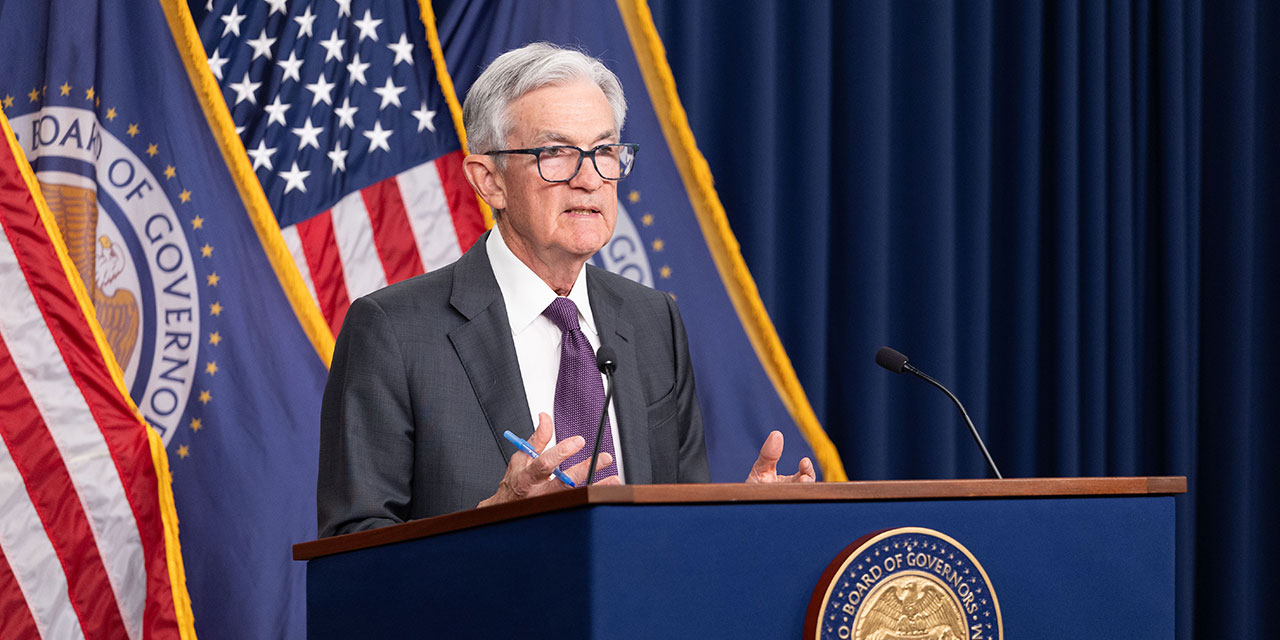Progressives accuse their political opponents of “weaponizing the First Amendment” and transforming it “from a shield of the powerless to a sword of the powerful.” Beneath the leftist jargon is a well-worn complaint about American free speech rights: that they apply equally, even to conservatives, corporations, and the religiously devout. Frustrations with the First Amendment’s breadth have routinely inspired attempts to evade its protections and impose censorship by other means.
One popular tool is debanking: the denial of financial services, often to the politically disfavored or depositors labeled “risky.” The practice re-entered the national spotlight after Joe Rogan’s recent bombshell interview with Marc Andreessen. The venture capitalist explained that, against the backdrop of the Biden administration’s hostility to some tech startups, he had seen around “30 [tech] founders debanked in the last four years.” Such efforts threaten Americans’ political freedoms, and the incoming Trump administration and Republican Congress should bring them to an end.
Customers are debanked for various reasons, including suspicion of money laundering, being a terror-finance risk, or posing risks to the “safety and soundness” of the financial institution. Of course, banks sometimes have legitimate reasons for ending a customer relationship: a depositor may indeed be a fraudster or terror financier.
But law-abiding Americans too often lose access to financial services. While the exact number of people affected is unknown, the Consumer Financial Protection Bureau has reportedly received more than 15,000 complaints of Americans being debanked since 2016. Some depositors are ensnared by over-sensitive, and often counterproductive, processes for flagging suspicious activity; they are typically left without recourse or a clear explanation. Others are pursued deliberately, with bureaucrats leveraging “reputational risk” regulation to induce banks to target politically disfavored customers under the guise of prudence.
One infamous example was Operation Choke Point, the Obama administration’s campaign to pressure banks to stop servicing putatively “high-risk,” and ideologically disfavored, businesses, such as payday lenders, gun sellers, and tobacco merchants. The regulators argued that by servicing depositors in such industries, banks tarnished their reputations and diminished public confidence in the financial system. In effect, the crackdown allowed the White House to immiserate legal businesses that it didn’t like.
While Operation Choke Point has ended, the underlying threat from broad regulatory discretion remains. Safety-and-soundness and reputational-risk regulation are particularly prone to abuse, since government itself can arouse the suspicions, making the idea of risk a self-fulfilling prophecy.
Consider the recent debanking of cryptocurrency businesses, which some commentators have dubbed Operation Choke Point 2.0. In a joint letter to banks, Biden-era regulators cited “[l]egal uncertainties” related to the crypto sector—“uncertainties,” of course, that were largely the result of federal agencies’ hostile treatment of the industry’s firms.
This playbook has been used to punish politically disfavored speech as well. In 2018, for example, the New York Department of Financial Services pressured financial institutions to cut ties with the National Rifle Association and other gun rights groups, citing “social backlash” and “reputational risk.” Thankfully, the Supreme Court unanimously held in NRA v. Vullo that such behavior “violated the First Amendment.”
The Court made clear that the way New York bullied intermediaries to suppress private organizations’ speech (an example of so-called “jawboning”) was unconstitutional. While the Court also mentioned “reputational risk” regulation, it left key questions about the practice unanswered. Given such regulation’s dubious benefits and its threats to Americans’ constitutional rights, Congress must put an end to the practice.
To protect consumers, Congress also should require regulators to disclose any requests made of regulated companies that implicate First Amendment activity. Transparency legislation can discourage jawboning and allow the censored to vindicate their rights, a particularly vital goal in the aftermath of Murthy v. Missouri, a government-censorship case dismissed on standing grounds. That ruling, which makes it harder for plaintiffs to sue to prevent future government censorship, ought to impel Congress to ensure that Americans can challenge such actions, including debanking, in court.
President-elect Trump and congressional leaders have expressed eagerness to halt debanking. They can start by ending reputational-risk regulation and requiring regulator transparency. As Justice Louis Brandeis famously observed, sunlight is the best disinfectant.
Photo: Oscar Wong / Moment via Getty Images



